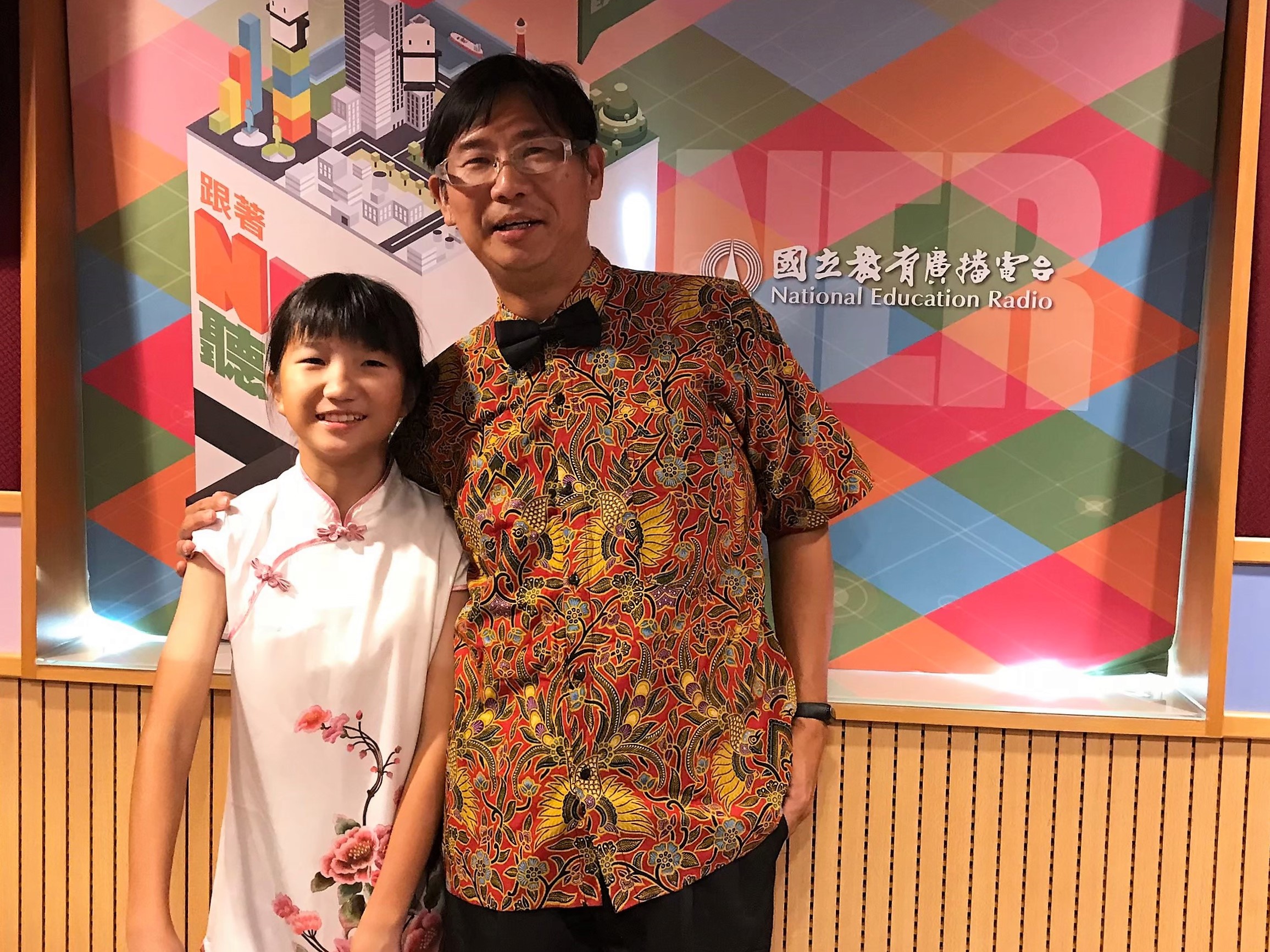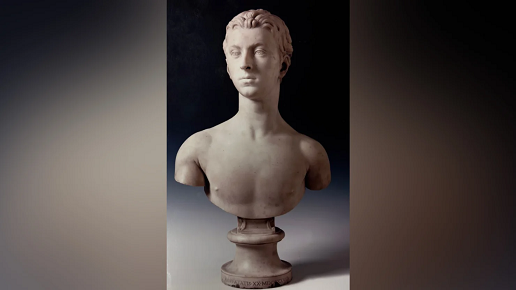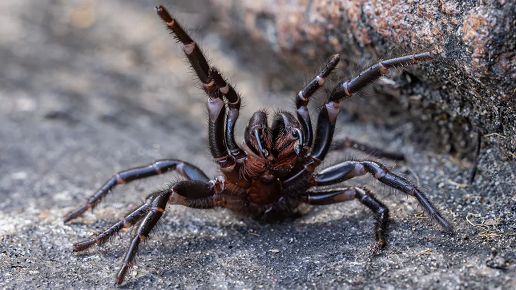Wu Chen-nan
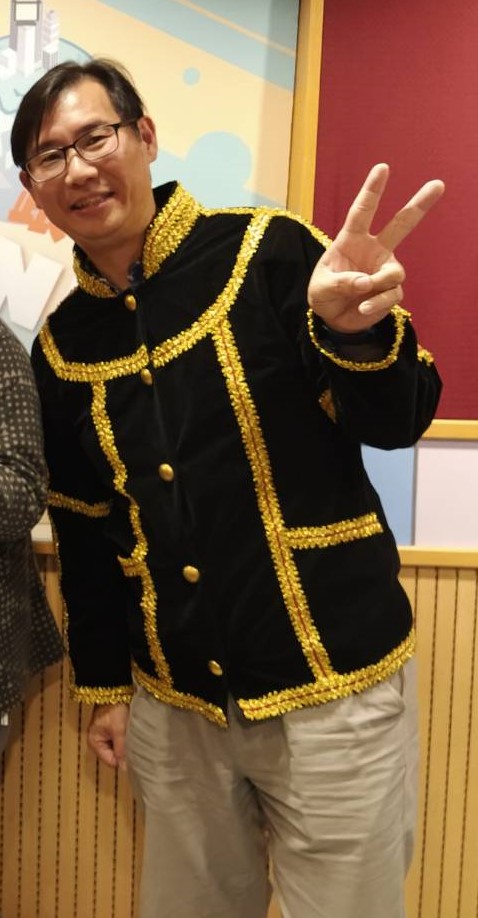
(Photo/Provided by Wu Chen-nan)
• Oriental Daily News Malaysia, International division journalist, Malaysiakini column
• Malaysia Promethean Fire Review, Editor, Chief Writer Key Commentary Column
• New Era University College (Malaysia), Department of Media Studies, Former Lecturer (Logic)
• Taiwan Ministry of Education, Malay textbook editor
• Southeast Asian Language Education, Teaching Support Staff, Qualification Class and Advanced Class
• National Educational Radio Station, "Easily Learn Malay", production host, and co-host of "Happy Community"
• New Taipei City, New Immigrant Language, Malay Language Teacher,
• Head of the Southern Rhythm Tambourine Troupe (the first Malay tambourine troupe in Taiwan)
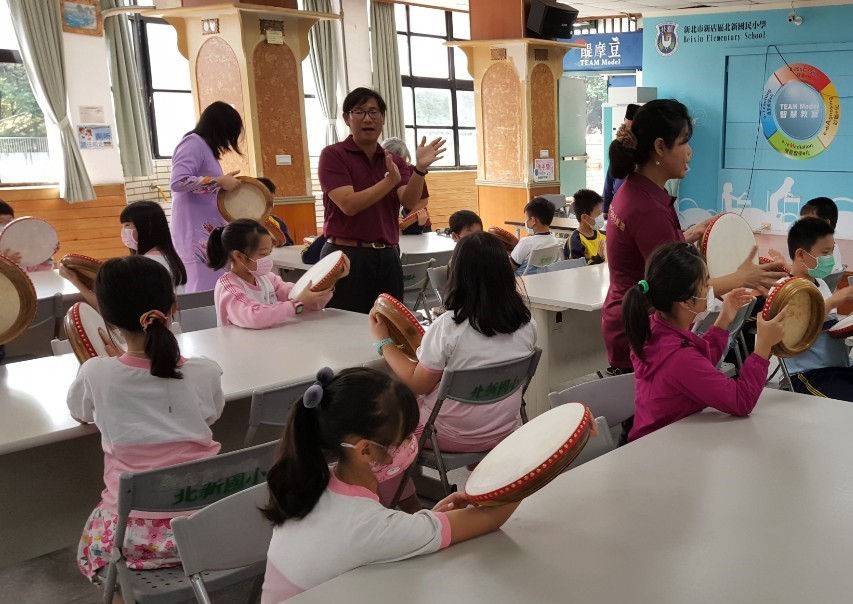
(Photo/Provided by Wu Chen-nan)
Coming from a multi-ethnic society in Malaysia, the special host of National Education Radio station (國立教育廣播電台) Wu Chen-nan is a senior international media personality and political commentator. Now he is committed to promoting the mother language education of the children of new immigrants and the promotion of multiculturalism.
In fact, for hundreds of years, Taiwan has been a mixed-race island where diverse ethnic groups have merged at different times, and from different backgrounds. In the age of globalization, immigration (movement) is always a continuous process. Many new immigrants have migrated to Taiwan and gradually changed Taiwan’s demographic structure. It has become Taiwan’s fifth largest ethnic group and is an indispensable part of society.
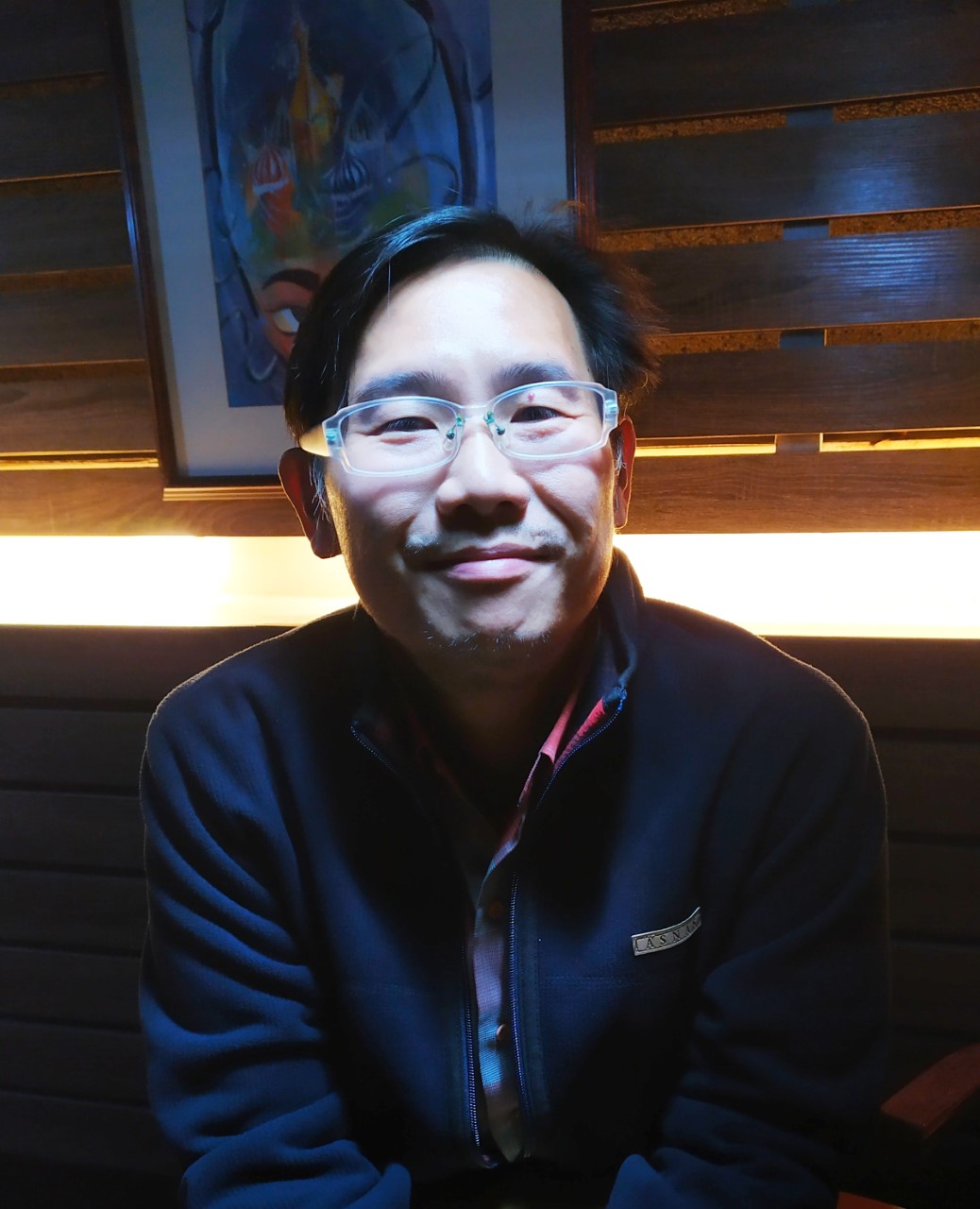
(Photo/Provided by Wu Chen-nan)
In 1993, Wu Chen-nan graduated from high school and came to Taiwan to study at university. He stayed in Taiwan for about eight to nine years. Wu Chen-nan said that although Taiwanese society in the 1990s was in the period of transition from martial law and its political and social values were undergoing drastic changes, the overall society was still quite simple. The languages used in the country were all mainly Chinese (Mandarin, Taiwanese, Hakka). The overall environment for foreigners at that time was not yet as welcoming and perfect; therefore, only few foreigners were working, living, or studying in Taiwan.
The second time Wu returned to Taiwan was in 2006, after he and his wife got married and decided to live in Taiwan. This time Wu Chen-nan saw that Taiwan's society has changed a lot. One can see many foreigners, such as Indians and Caucasians walking around and the number of ethnic groups in Taiwan has increased significantly. There were more and more foreign restaurants, and more international elements were integrated into the local lifestyle resulting in a more diverse and complex society.
There was also an increase in the Taiwanese people's acceptance of foreign multiculturalism. For example, in some restaurants or in some food packaging in Taiwan, the halal certification mark can be seen, and this is to acknowledge and to respect Muslims, and is a sign of a more international view of multiculturalism.
In fact, Taiwan’s society has been trying to learn to respect each other for multiculturalism in recent years. For example, many immigrants can separate their cultural identity and national identity and integrate smoothly in the new environment in Taiwan.
Wu Chen-nan said that in recent years, Taiwan's policies and services for new immigrants have undergone big changes and have become friendlier. Like the matter of applying for a residence permit, through the years, the Taiwan government has made many amendments to the application for residence permits and has made it more friendly for new immigrants. In addition, the conditions for applying for household registration and permanent residence have been thoroughly studied and have become more considerate. Because of this, the new immigrants can enjoy the benefits of the policies that is constantly improving.
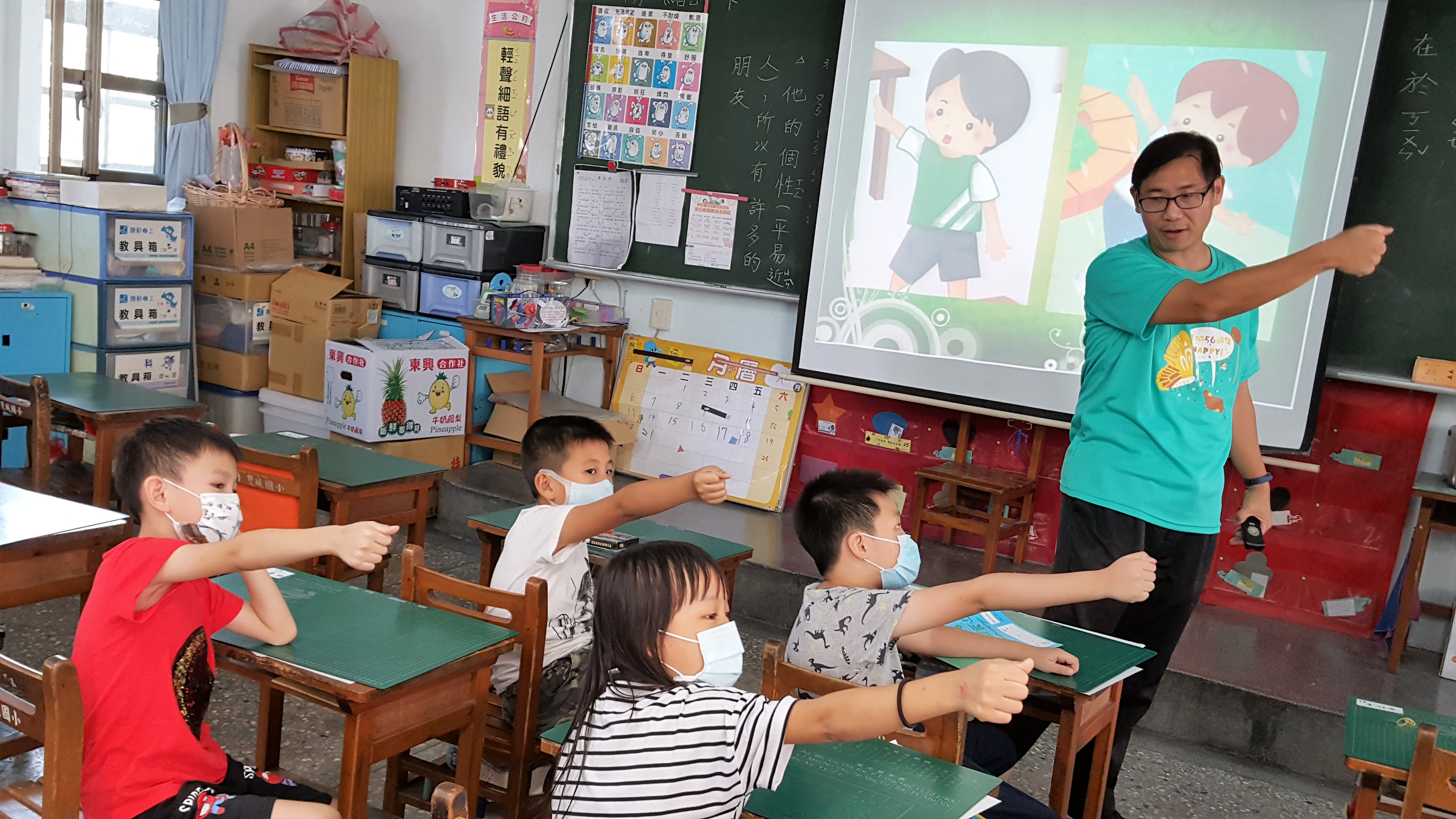
(Photo/Provided by Wu Chen-nan)
Take Wu Chen-nan's family as an example. When he married his Taiwanese wife, he thought of applying for her dependent residence visa in Malaysia, but they faced many difficulties. In contrast, Taiwan’s application for dependent residency is easier. Therefore, Wu Chen-nan and his wife decided to return to Taiwan to settle down, and they worked full-time with his "wife" as a full-time housewife to teach their children, and Wu started writing articles for many Malaysian newspapers, periodicals, and Internet media. Later, because of fate, he helped the New Taipei City Government Education Department (新北市教育局) edit the language textbooks for new immigrants and so he got involved with language education work for new immigrants.
To allow their daughter, who was born and who grew up in Taiwan, to have the opportunity to learn multiculturalism, Wu Chen-nan encouraged her to learn their mother language and join the mother language education for new immigrants. He not only assisted the New Taipei City Government Education Department to edit the 2019 syllabus of the new immigrants’ language teaching materials, but also produced and hosted the radio program "Learn Malay Easily" (輕鬆學馬來語) on the National Education Radio station together with her multi-talented daughter.
Wu Chen-nan and several friends from Malaysia, Chang Chun-hao (張俊浩), Huang Pao-yun (黃寶雲), Liu Yun-yun (劉蕓蕓) and Yang Wei-kuang (楊偉光), established the Southern Tempo Tambourine Group (南方節奏手鼓團) through the "Dream-Building Project for New Immigrants and their Children" (新住民及其子女築夢計畫) of the National Immigration Agency (NIA, 移民署). The performance introduces Malaysian traditional musical instruments and Malaysian culture to the Taiwanese.
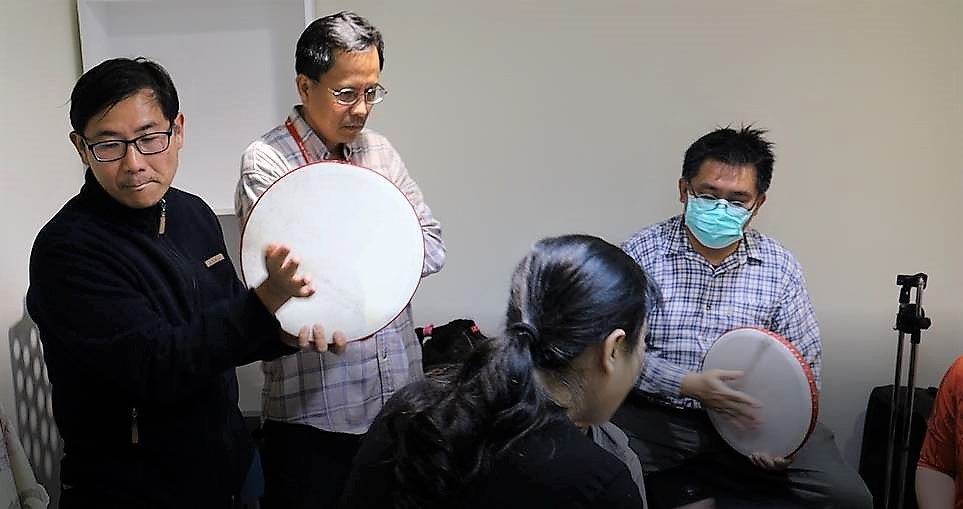
(Photo/Provided by Wu Chen-nan)
Wu Chen-nan believes that percussion is the origin of music, it is the type of music that allows people to cross the barriers of language and ethnic groups, and it is also the best way to communicate with other cultures. Wu Chen-nan and the team members who are also teaching Malay in the school brought the tambourine into the Malay language teaching curriculum of the school, and then slowly expanded from the school to other fields.
According to statistics from the Ministry of the Interior (MOI, 內政部) in November 2019, the population of new immigrants who have obtained their Taiwan national identity cards has exceeded 650,000. There are also nearly 770,000 foreign migrant workers (blue-collar) and white-collar workers (foreign professionals) in Taiwan. Every year, one in eight babies born is a child of a new immigrant family and the population of new immigrants has exceeded the population of Taiwan’s aborigines and is now the fifth largest ethnic group in Taiwan.
When the new immigrants (foreign population) are no longer a minority in Taiwanese society, how should Taiwan accept a multicultural society and whether it is ready for multi-ethnic society? This may be a topic worthy of serious consideration.
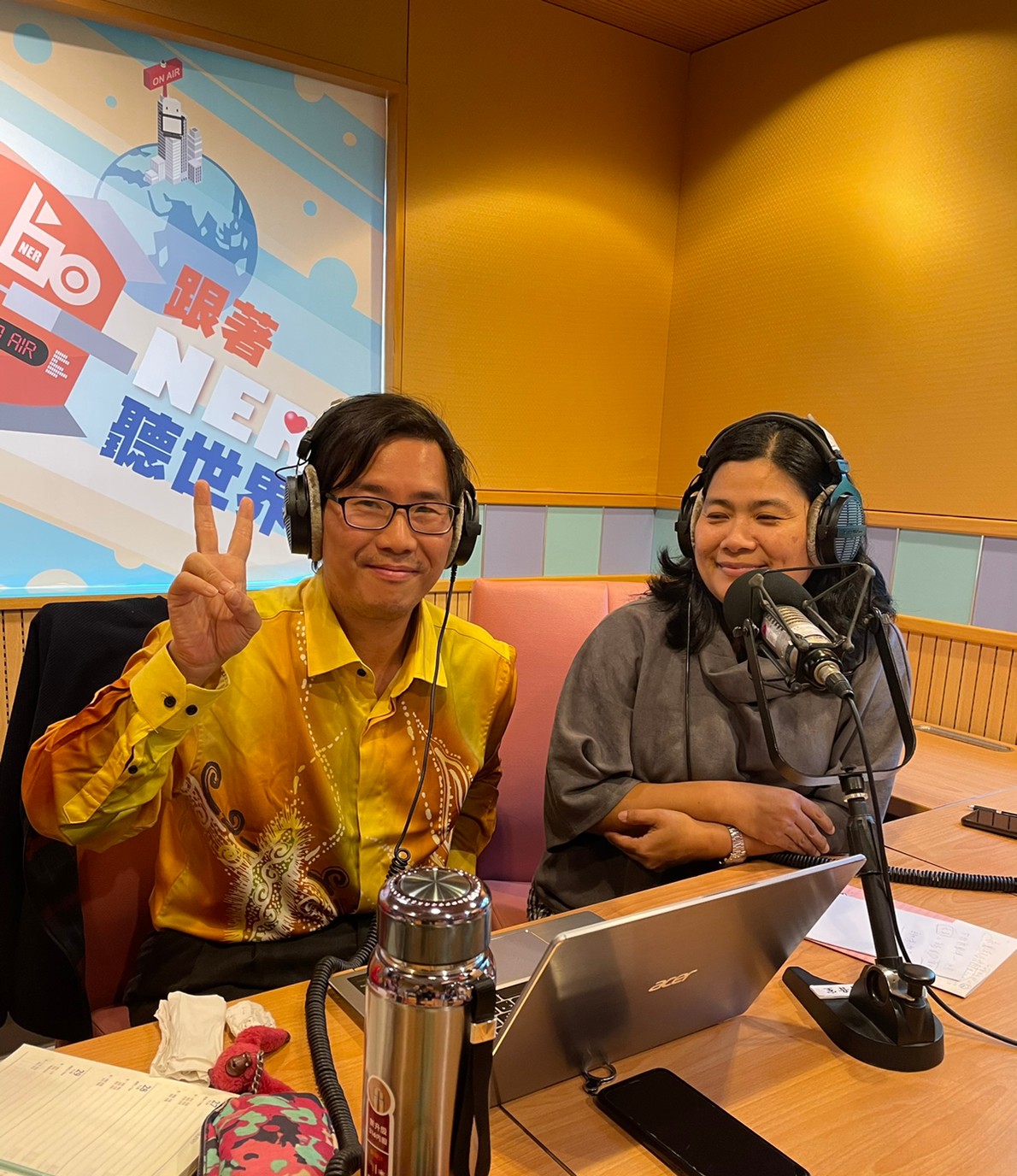
(Photo/Provided by Wu Chen-nan)

